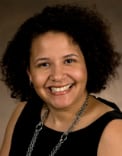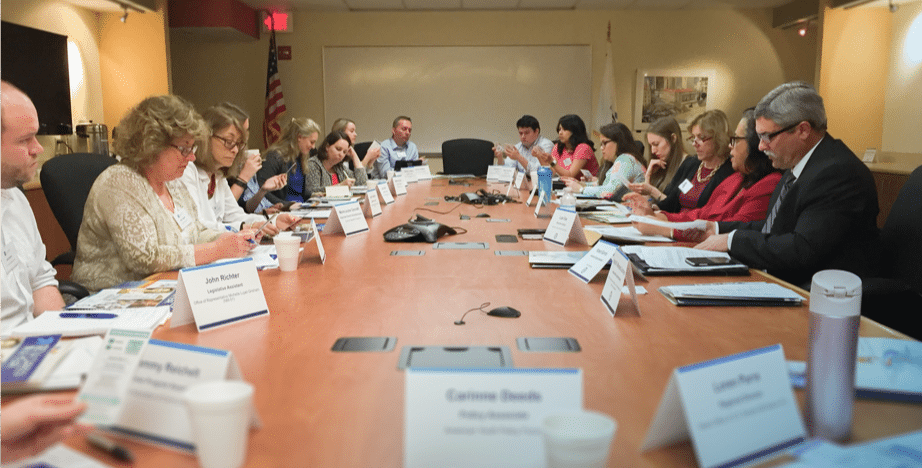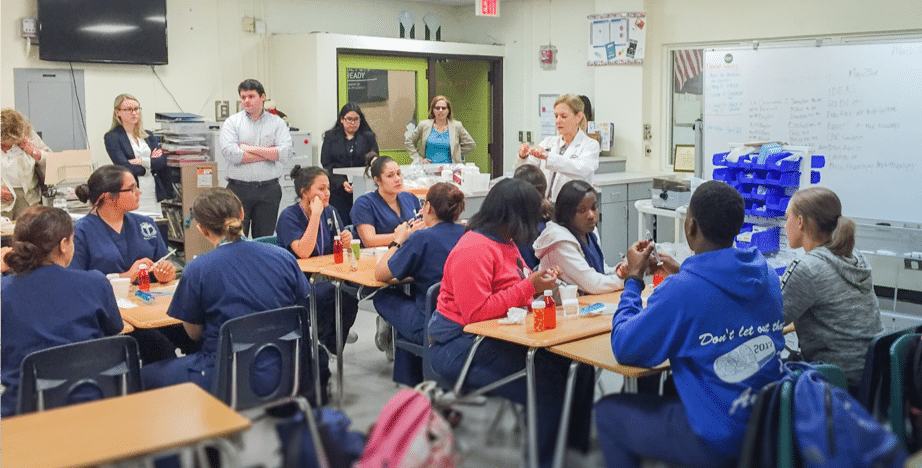Overview
College credentials are in greater demand in today’s economy than ever before. College access and success advising has proven to be an effective strategy for ensuring that more students obtain these credentials. For first-generation, low-income (FGLI) students who traditionally earn these credentials at lower rates than their peers, advising can be an especially critical tool for ensuring that the transition to and through postsecondary education is as smooth as possible. Considering the ever-present role that technology plays in our lives, online and technology-facilitated advising may be a promising strategy to get information faster and more reliably into the hands of students who need it most. From social media to text messages, this webinar explored the ways in which technology can be leveraged to complement in-person college advising for FGLI students.
Presenter Biographies
 Tania Johnson-Rachkoskie is the director of education and training at the National Association for College Admission Counseling (NACAC). She brings with her 16 years of college admissions and college counseling work, most often focusing on recruitment of students of color.
Tania Johnson-Rachkoskie is the director of education and training at the National Association for College Admission Counseling (NACAC). She brings with her 16 years of college admissions and college counseling work, most often focusing on recruitment of students of color.
 Following three years as an intern, first-generation college graduate Chelsea Jones joined the Center for Student Opportunity full-time and is currently Associate Director of Student Programs for the I’m First Initiative. Previously, Chelsea worked for First Focus, a policy organization focusing on children and families, and Heads Up DC, a non-profit providing rigorous after-school and summer programs for elementary school children in underserved neighborhoods. Chelsea was a participant in the Goldman Sachs Scholars Alumni program, and is an alumna of Princeton University Preparatory Program (PUPP), an academic and cultural enrichment program for low-income, high-achieving high school students.
Following three years as an intern, first-generation college graduate Chelsea Jones joined the Center for Student Opportunity full-time and is currently Associate Director of Student Programs for the I’m First Initiative. Previously, Chelsea worked for First Focus, a policy organization focusing on children and families, and Heads Up DC, a non-profit providing rigorous after-school and summer programs for elementary school children in underserved neighborhoods. Chelsea was a participant in the Goldman Sachs Scholars Alumni program, and is an alumna of Princeton University Preparatory Program (PUPP), an academic and cultural enrichment program for low-income, high-achieving high school students.
 Chris Mitchell is the National Senior Manager of Curriculum & Instruction for College Possible. He has been pursuing educational equity as a teacher, mentor and nonprofit program leader since beginning his career in 2004. Chris is a Teach For America (TFA) alumnus and taught high school English in Newark, NJ for two years. After completing his TFA commitment, he worked as a counselor and mentor in New York City before joining the College Possible team in 2008. Chris holds a B.A. in English from the University of Minnesota and earned a graduate certificate in Instructional Design from the University of Wisconsin-Stout.
Chris Mitchell is the National Senior Manager of Curriculum & Instruction for College Possible. He has been pursuing educational equity as a teacher, mentor and nonprofit program leader since beginning his career in 2004. Chris is a Teach For America (TFA) alumnus and taught high school English in Newark, NJ for two years. After completing his TFA commitment, he worked as a counselor and mentor in New York City before joining the College Possible team in 2008. Chris holds a B.A. in English from the University of Minnesota and earned a graduate certificate in Instructional Design from the University of Wisconsin-Stout.
 Dr. Lindsay Page is an assistant professor of research methodology at the University of Pittsburgh School of Education. Her work focuses on quantitative methods and their application to questions regarding the effectiveness of educational policies and programs across the pre-school to postsecondary spectrum. Much of her recent work has focused on investigating potential solutions to “summer melt,” the phenomenon that college-intending students fail to transition successfully from high school to college. She holds a doctorate in quantitative policy analysis and master’s degrees in statistics and in education policy from Harvard University.
Dr. Lindsay Page is an assistant professor of research methodology at the University of Pittsburgh School of Education. Her work focuses on quantitative methods and their application to questions regarding the effectiveness of educational policies and programs across the pre-school to postsecondary spectrum. Much of her recent work has focused on investigating potential solutions to “summer melt,” the phenomenon that college-intending students fail to transition successfully from high school to college. She holds a doctorate in quantitative policy analysis and master’s degrees in statistics and in education policy from Harvard University.
 Gabe Reyes is currently a pre-medical sophomore studying Cognitive Neuroscience at Brown University. He was raised by two loving parents who immigrated to America from Mexico and is the second oldest of 4 children. Gabe is the first in his family to attend college, and hopes to inspire generations after him to pursue postsecondary education. He is the first from his high school to be admitted to Brown, and the first student to be named a Gates Millennium Scholar. Last summer, Gabe interned in New York City for a nonprofit called CARA, which aimed to assist first-generation students in the city with college admissions. He is also a recipient of a 3-year international fellowship known as the Future Global Leaders Fellowship, which aims to support talented first-generation students become leaders in their field. This summer, Gabe will be working in Peru, Vietnam, and New Zealand learning medicine from an international perspective, and will study abroad in Copenhagen next Fall. Gabe aspires to become a neurosurgeon and to continue helping first-generation students.
Gabe Reyes is currently a pre-medical sophomore studying Cognitive Neuroscience at Brown University. He was raised by two loving parents who immigrated to America from Mexico and is the second oldest of 4 children. Gabe is the first in his family to attend college, and hopes to inspire generations after him to pursue postsecondary education. He is the first from his high school to be admitted to Brown, and the first student to be named a Gates Millennium Scholar. Last summer, Gabe interned in New York City for a nonprofit called CARA, which aimed to assist first-generation students in the city with college admissions. He is also a recipient of a 3-year international fellowship known as the Future Global Leaders Fellowship, which aims to support talented first-generation students become leaders in their field. This summer, Gabe will be working in Peru, Vietnam, and New Zealand learning medicine from an international perspective, and will study abroad in Copenhagen next Fall. Gabe aspires to become a neurosurgeon and to continue helping first-generation students.




